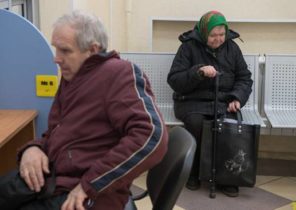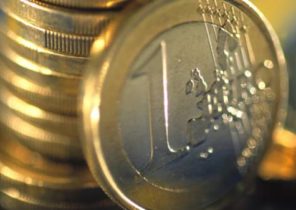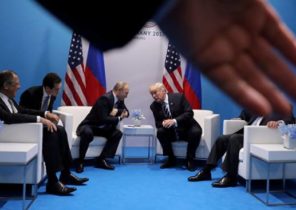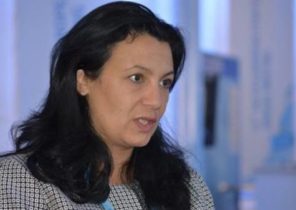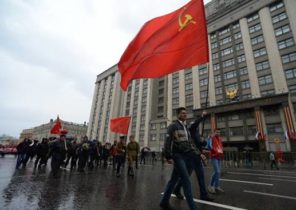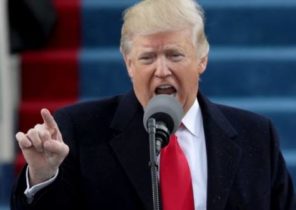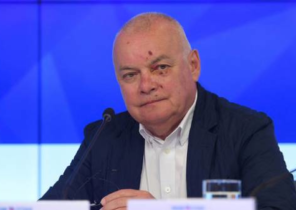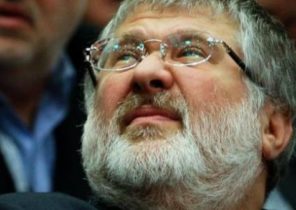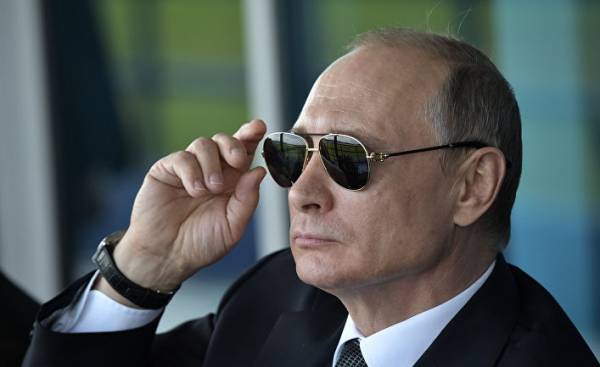
Joshua Yaffa (Yaffa Joshua), a reporter for the New Yorker in Moscow and member of the expert group New America, not for the first month writes about Donald trump, Vladimir Putin and the scandal surrounding campaign trump and Russia, which every day becomes more and more interesting. He recently spoke about the irritation of many Russian journalists about the coverage of the situation in the American media, which, in their view, exaggerate the direct influence of Putin on various aspects of their society and represents the possibility of the Kremlin in too favorable light.
The Jaffa have discussed these issues via Skype. Our conversation (it was edited and compressed for clarity) about the causes of the exaggeration of Putin’s influence, the existence of several small instead of one large scandals and how the life in Moscow allows us to look at the problems of the administration of the tramp from a different angle.
Isaac Chotiner: How five years of life in Moscow changed your opinion on this scandal?
Joshua Yaffa: Honestly, it’s hard to say where I was, closer to the prospect of American or Russian media. In any case, I’m somewhere between these two poles. On the American side I get the scale and madness of what is happening. I think that the Russian correspondents still do not catch how the whole story is serious in Washington, that is quite true.
On the other hand, with the prospect of Russian colleagues brings me observed here is not the first year the principle of this environment: I mean Putin, the Kremlin, the Russian government. I see that although Putin is not alien to the desire to put spokes in the wheels and interfere with the carefully designed plans of the US and the West in General, often it turns out that he runs an inefficient, smoky and thoroughly corrupt machine, which is very far from all-powerful organisations of villains from a James bond movie. I think in some cases the American media characteristic (which is understandable), perhaps even unconsciously, carry out the connection between them by painting a picture of the omnipotence and omnipresence of the Putin machine and its tentacles.
— I think they are wrong?
Yeah, when I think of Putin as the only power in the system that clearly and effectively performs his slightest order. When you think that if Putin says something, in an hour it becomes a reality. Sometimes it really happens. I’m not trying to minimize and not take into account the extent of Putin’s control in the Russian political system. The problem lies in the gears of this machine, President Putin’s ability to snap your fingers and create a new reality.
The second point is where they are wrong, it is a question of tactics and strategy. Some reports are reviewed attempts to tie all the elements of “Russian Affairs” with each other. This happens, of course, not all articles and not all journalists, but we still see the desire to link all looking back: as a result it looks as if the Putin years wove a large-scale conspiracy, and that at various points involved different strategies that make up one large project. By “project” I mean the intention to achieve a clearly defined political goal. I think it also reflects a poor understanding of the work of the Putin system.
Talked about this several Russian journalists, including, I think, Mikhail Zygar, the author of a very interesting inside look at the Kremlin’s policy. He told me that there is no conspiracy, but there is just chaos. I think it is important not to forget that the Putin system is directed primarily to the reaction: that is, she is very agile and flexible at the tactical level, but not too strong in the development and implementation of long-term strategic projects.
— Do not change this system for the past five years?
I think she became more rigid and less flexible. I arrived in country in early 2012, in the midst of a season of demonstrations. It was the end of a kind of fairground booth, “Lite” version of Putin’s authoritarianism: all one way or another participated in the show and be provided socio-political valves, which gave some freedom for extraordinary and independent political thought. The Putin system is created the appearance of a lively and pluralist democracy, but a big part of this picture was a fake. Fake youth groups, fake political parties… All were organized from behind the scenes, but as they say, the show was on.
I think over the years, after Putin’s return to power in 2012, the Kremlin’s course has become tougher, as in the international arena and in domestic politics after the events in Ukraine in 2014. All of this is still ongoing. Became less patience, flexibility, desire to play this game. Putin’s system is now increasingly going to direct repression. Today have less to think about visibility.
— So, you believe that the Russian government has sought to sow chaos and confusion in the elections, without relying on any special results (and assuming it could help a little bit the Tramp), but in the end they have surpassed all expectations?
— In General, Yes. I think Putin is not even in my wildest dreams could not imagine that the Americans will build myself something similar, but eventually it happened. Trump’s victory ensured American, not Russian voters.
In addition, it is important to understand the sincere cynicism of Putin’s associates. Their cynical view of the principles of the world, not just visibility. I think they actually believe that the world is ruled by selfishness and cynicism. Beliefs, sincerity, honesty — all this does not exist for them. All this leads to a kind of analytical conclusions, for example, that the American system and the establishment will never allow Trump to win. Media, political parties, the Washington lobby — all of these forces, which in a country like Russia is indeed not given to man to become President, was to somehow prevent the Trump. I think that these tenets were the basis of the accepted Putin’s tactical decisions during the campaign.
— If so, then why bother to try to tip the scales?
— For a number of reasons. First of all, Putin is surrounded by a Legion of paranoid people who are obsessed with security issues, and held apocalyptic views on the possible election of Clinton. They thought that it will be much tougher Obama (quite rightly, I think). According to them, it was fraught with serious consequences for Russia and its room for manoeuvre in the international arena. In addition, Putin is actually convinced of US involvement and personally Hillary Clinton for demonstrations against him in 2011 and 2012. He feared escalation of potential military stalemate, or even of the conflict in Syria if elected Clinton President.
They all considered her a real threat and therefore support everything that could weaken her, to give rise to doubts about its election and subsequent presidency. In addition, I think, the most important advantage of intervention in elections they considered the weakening of the institutions of American democracy, the spread of doubt, uncertainty and chaos. Throw dirt in the direction of the American democratic system might be for Russia is extremely positive, regardless of the voting results.
It will be interesting to examine the campaign coverage in the Russian media before the vote. This allows you to look at the thinking of the Kremlin. So, before the election, state television does not trump praised, not preparing for his victory and even did not think that it was possible. The attitude was: “of Course, Clinton will win. It is inevitable, because the American system can only accept this result. Anyway, all this campaign has shown how badly rotten and collapsed the American system”.
Dmitry Kiselev, one of the most pompous of the leading Russian television, from the very first days stated that the new President will have to deal with hearing about his possible resignation. I think all of this suggests that they were preparing to fight against a well known enemy and hoping she will take office greatly weakened.
Very strange and ambiguous compliment to our system…
You give voice to a significant part of the Russian-American speakers as it is seen in Moscow. It’s hatred mixed with envy, which is not expressed openly, and is sublimated.
Putin and company I think that can’t do anything that wasn’t already invented, tested and perfected by the Americans. To us it may seem strange (the Americans have the impression that this scandal in some way robbed of their innocence), but from the point of view of Russia at the origin of all are the United States, which manipulate the policies of other countries. In recent years the Kremlin was under the impression that he needs to catch up in areas such as cyberspace (he realized its significance much later than US), and to prevent the recurrence of “color revolutions” (Putin is convinced that the US is pulling their rope in the former Soviet space and the middle East).
Not to say that the Russian operation in 2016 was a “color revolution”, but in any case, Putin believes that only slightly tested practice which the United States actively use is not the first decade. I’m not saying I agree with this position: Russian and American approaches to influence policy are very different. But I am convinced that Putin and his Kremlin entourage not notice these differences. From their point of view, the US reaped what they sowed.
— Has the situation with Donald trump Jr. is your opinion on the scandal?
— No, not really. I never considered collusion or something incredible and impossible, and all this was not a surprise to me. The interesting thing is that it allows us to understand how it all works really. Even here we are not talking about large-scale conspiracy of the Kremlin for the election of Donald trump, and all confined to a second-rate conspiracy of swindlers and parasites, they still get caught up in this, and they have high-level connections in Moscow. We see these people on different levels and with different interests interact with each other, and implement their own orders and the orders of others. Such details are of great interest to me, as someone who has devoted most of professional life the analysis of this environment mechanisms. I am absolutely not surprised that they resort to services of intermediaries, which when viewed from afar look minor and silly characters.
— What do you think about the role of the lawyer of Natalia Veselnitskaya (trump Jr. met her in the campaign to get information about Hillary Clinton, approx.ed.) in this story?
— I perceive it as a social climber from the middle of the political sphere, which does not have access and contacts in the highest echelons of power. Her career took place in the Moscow region that is difficult to explain to the American audience. The Moscow region is located around the capital, but does not include the city of Moscow, which, I think, is a good metaphor for her career. It is rotating somewhere in the orbit, but is unable to penetrate into the Holy of holies.
Apparently, she really had spent several years fighting the Magnitsky act. And he fought it with enthusiasm. It is possible that she perceived this meeting as an opportunity. Of course, I can only speculate, but she might consider meeting with trump, Jr., as an opportunity to bring to your attention the struggle of influential Americans, at the same time giving one of them a favor.
— My attention was drawn to the fact (and I’m talking about the period before WikiLeaks) that someone could write in an email Trump-Jr: “Obviously, we are talking about very sensitive information at the highest level, but it comes from Russia, and that government support of trump.” And neither one had the question: “what do you say?”
— This raises the question, which is, I think, for the most part this story. We are talking about the fact that the answers to a number of mysteries are in America, within the dynamics of the campaign trump and family trump. Why trump Jr. was so bad and untenable conspirator without the slightest idea as being dirty politics, you need to ask the trump, Jr. Only he can answer why it wasn’t responded to something that would have any sane politician and citizen.
— Furthermore, why did he not say: “What the Russian government is trying to…”
— I agree. Unfortunately, in the current situation we do not know whether they knew before about the existence of the conspiracy or were so stupid that they did not notice anything suspicious.
— And why send the letter one has chosen such wording…
— So. And until we hear the full version of Emin Agalarov, we won’t know what happened before this conversation.
— A wise man recently told me that even if here and there is a big conspiracy, it will not tie everything together. Will be a huge variety of threads to different people who do different things. And it absolutely will not bring you satisfaction, even if our worst fears are confirmed.
— Of course, I don’t think that Russia’s approach to covert operations so different from other countries. Natalia Veselnitskaya hardly knows working for the FSB and GRU hackers who infiltrated the servers of the National Committee of the Democratic party and the Podestà. If this operation was developed and coordinated by the Kremlin, at different stages involved performers who can’t have direct links from the top of Russian politics. I think it reflects not only Russia adopted in practice, but the General rules of covert operations.
